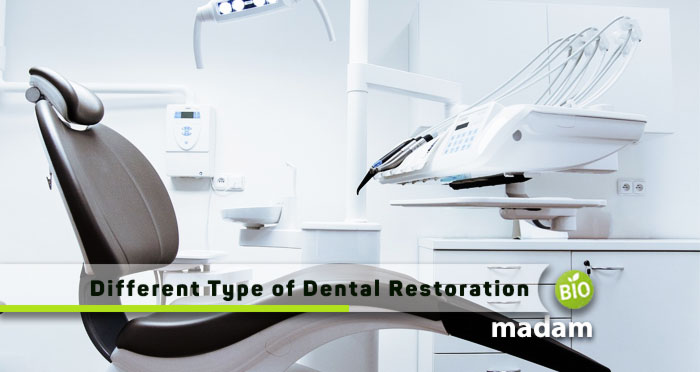Dental restorations play a crucial role. Whether you have a cavity or chipped tooth or simply want to enhance your smile, various dental restorations can help restore your teeth’s functionality and aesthetics. From traditional fillings to advanced veneers, this article explores the different dental restorations available today, shedding light on their purposes, benefits, and considerations.
Gum Disease Treatments
Ensuring optimal oral health goes beyond fixing visible dental restorations. Gum disease affects the supporting tissues around the teeth and can lead to serious complications if left untreated. Fortunately, several effective treatments are available to combat gum disease, restoring the health of your gums. From non-surgical interventions like scaling and root planing to more advanced procedures like gum grafting and flap surgery, dental professionals offer a range of solutions tailored to the severity of the disease. According to a seasoned dental practitioner providing LANAP surgery in Denver, you can also consider Laser Assisted New Attachment Procedure (LANAP), a revolutionary FDA-approved laser gum surgery offering a more comfortable and effective gum disease and gum recession treatment. By exploring these gum disease treatments, you can take proactive steps to preserve your oral well-being and maintain a vibrant smile for years.
Fillings
Fillings are typically used to repair teeth damaged by decay, fractures, or minor chips. Traditionally, silver amalgam fillings were widely used; however, tooth-colored composite resin fillings have gained popularity with advancements in dental technology. These resin fillings offer a more natural appearance, which can be color-matched to your teeth, making them virtually indistinguishable. They are also known for their durability, strength, and resistance to wear and tear. In addition to restoring the tooth’s structure, composite fillings bond directly to the tooth, providing added support and minimizing the risk of further damage.

Crowns
Crowns are restorations covering a damaged or weakened tooth completely. They are typically used when a tooth has undergone extensive decay, trauma, or root canal treatment. Crowns are often custom-made to match your natural teeth’ shape, size, and color, providing both aesthetic and functional benefits. They can restore the tooth’s strength, protect it from further damage, and improve its appearance. Crowns are often made from materials like porcelain, ceramic, or metal alloys, and the choice of material depends on factors such as the location of the tooth, desired aesthetics, and your dentist’s recommendation.
Bridges
Dental bridges are restorations used to replace missing teeth, consisting of single or more artificial teeth (pontics) anchored to neighboring natural teeth or dental implants. Bridges not only fill the gaps left by missing teeth but also help maintain the alignment of your remaining teeth and restore proper chewing and speaking abilities. Traditional bridges are secured to adjacent teeth using dental crowns, while implant-supported bridges utilize dental implants for support. Your dentist will evaluate your needs to determine the most suitable option.
Dentures
Dentures have long been a popular solution for replacing multiple missing teeth or a full arch of teeth. These removable dental appliances are customized to fit your mouth and restore your ability to eat, speak, and smile confidently. Dentures can be made from acrylic, metal, or both. While full dentures replace an entire arch of missing teeth, partial dentures are used when some natural teeth remain. Advances in dental technology have also led to the development of implant-supported dentures, providing improved stability and comfort.
Dentures also offer a practical and cost-effective option for individuals seeking to regain their dental functionality and aesthetics. Beyond their ability to restore a complete smile, dentures can positively impact oral health. They support the facial muscles, preventing sagging and maintaining the face’s natural shape. Additionally, dentures aid in proper chewing and digestion, allowing individuals to enjoy a varied and nutritious diet. With good care and regular dental check-ups, dentures can provide a durable and comfortable solution for those seeking to reclaim their confidence and restore their quality of life.
Implants
Dental implants revolutionized the field of dental restoration. Implants are titanium posts surgically placed into the jawbone, acting as artificial tooth roots. They are a foundation for dental repairs, including crowns, bridges, and dentures. Dental implants offer exceptional stability, durability, and a natural look and feel. They help prevent bone loss in the jaw, preserve the facial structure, and eliminate the need to alter adjacent healthy teeth, as traditional bridges require. While dental implant treatment requires a longer process, the long-term benefits and aesthetic outcomes make it an excellent option for individuals seeking permanent tooth replacement.
Veneers
Veneers are a popular choice for individuals seeking to enhance the appearance of their smiles. These thin shells, typically made of porcelain, are custom-made and bonded to the front surface of teeth to correct various cosmetic imperfections. Veneers can address discoloration, chips, cracks, misalignment, and gaps between teeth. They are known for their natural clarity, stain resistance, and ability to provide instant transformations. Minimal tooth preparation is required for veneers, making them a conservative option for achieving a beautiful smile.
In addition to their cosmetic benefits, veneers also offer functional advantages. Applying veneers can strengthen weakened teeth and provide added protection against further damage. By covering the tooth’s front surface, veneers can act as a barrier against enamel erosion and reduce sensitivity. Furthermore, they can improve bite alignment and help correct minor orthodontic issues, offering an alternative to traditional braces or aligners. With proper care and maintenance, veneers can provide long-lasting results, allowing individuals to enjoy a confident and radiant smile for years. Whether you’re looking to correct cosmetic flaws or improve your teeth’ overall health and function, veneers can be a versatile and effective dental restoration option.

Maintaining good oral health and restoring damaged teeth are essential to overall well-being. Dental restorations offer effective solutions for various dental problems, ranging from minor decay to missing teeth. Understanding the different types of dental restorations available allows you to make informed decisions in collaboration with your dentist. A healthy and confident smile is within reach whether you opt for gum disease treatments, fillings, crowns, bridges, dentures, implants, or veneers. Regular dental check-ups and proper oral hygiene practices will help ensure the longevity and success of your dental restorations, allowing you to enjoy a lifetime of optimal oral health and a smile you can proudly display.

Hi, they call me Jenna, and I am also known for achieving a gold medal during my Ph.D. in science life. I always had a dream to educate people through my utmost writing hobby. So, I chose this blogging path, and Biomadam gave me this opportunity to present for them. I now stand to entertain you. Continue reading my articles & discuss if you’ve any confusion through the comment section below.

